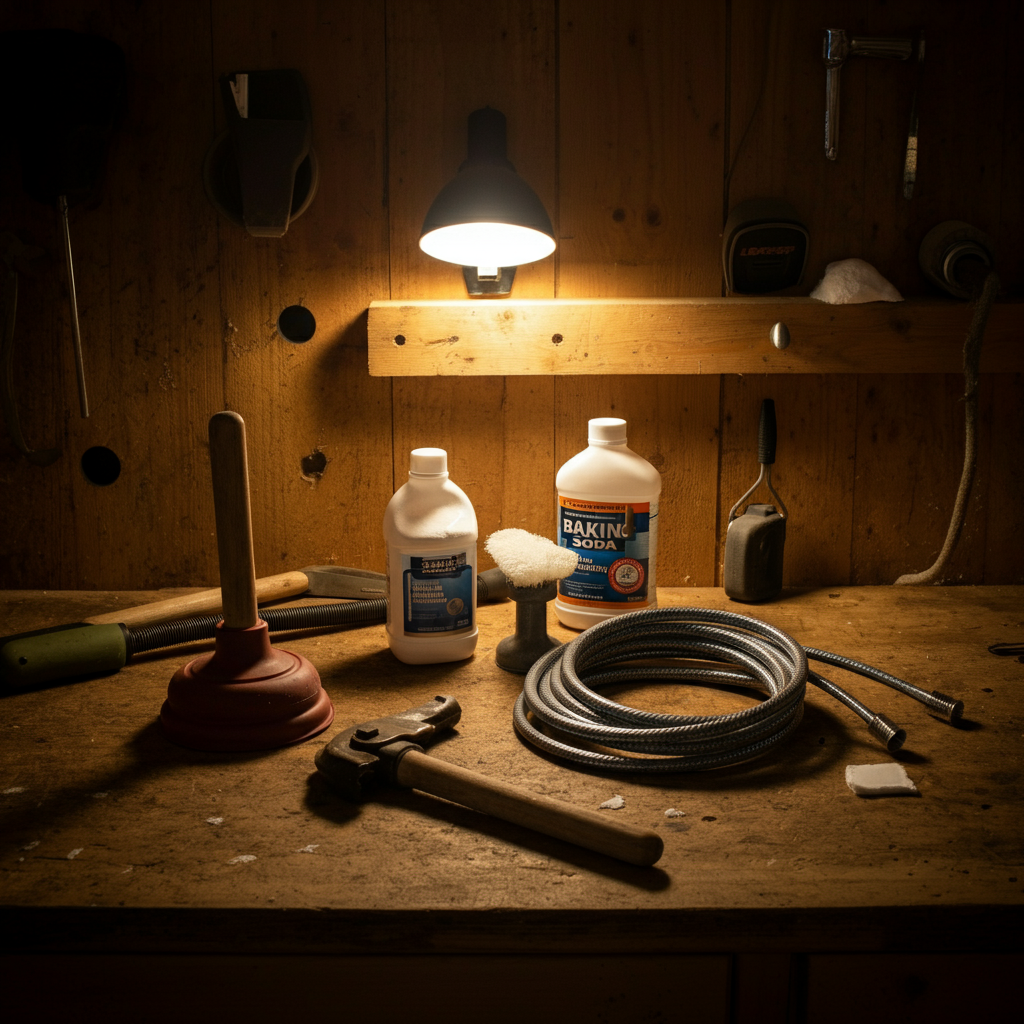
Have you ever dealt with a clogged drain? It's a frustrating and often unpleasant experience that can disrupt your daily routine. But worry not! You can effectively tackle blocked drains and restore proper water flow with the right knowledge and techniques.
In this comprehensive guide, let us explore various ways on how to unblock a drain, as well as familiarise the common culprits of clogged drains.
Understanding the Culprit: Common Causes of Clogged Drains
Before we discuss solutions, it's crucial to identify the potential causes of the blockage thoroughly. Understanding the root of the issue allows us to address it effectively rather than just treating the symptoms.
By understanding these common causes, we can better tackle the blockages and maintain clear and efficient drainage systems.
1. Hair
Hair is a notorious cause of clogs, particularly in shower drains, where it can trap soap and other debris, forming a dense mass that restricts water flow.
Regularly cleaning the drain cover can help prevent buildup that leads to blocked drains.
2. Soap Scum
Over time, the buildup of soap scum can occur due to residues left behind after washing. This sticky layer can cling to pipes, leading to clogs that can be difficult to remove. Applying vinegar and baking soda treatment can help dissolve soap scum.
3. Food Particles
Food debris from washing dishes can accumulate in kitchen sinks, creating blockages. This is especially common when large food particles are rinsed down the drain.
Using a filter or dish rack can minimise the amount of food waste entering the plumbing system.
4. Tree Roots
Tree roots can invade sewer pipes in older homes, causing significant blocked drains. This issue can be severe, as it often requires professional intervention to remove the roots and restore proper drainage.
Regular plumbing system inspections can help identify and address root invasions early on.
5. Foreign Objects
Small items like toys, jewellery, or cotton swabs can accidentally fall down the drain, leading to unexpected obstructions. Being mindful of what goes near the sink can help prevent these mishaps.
6. Grease and Oil
Pouring grease or oil down the kitchen sink can lead to significant clogs as they solidify and accumulate over time. Instead, dispose of grease in a container and throw it away to prevent blocked drains.
7. Mineral Buildup
Hard water can cause mineral deposits to accumulate in pipes, reducing water flow and leading to clogs. Installing a water softener can help reduce mineral buildup and protect your plumbing.
8. Dental Floss
Floss is often disposed of in sinks but can wrap around other debris and create stubborn blockages. To keep drains clear, dispose of dental floss in the trash.
9. Toilet Paper Excess
While toilet paper is designed to break down, excessive amounts can lead to clogs, especially in older plumbing systems.
10. Sanitary Products
Items like tampons and pads should never be flushed down the toilet, as they can cause blocked drains since they do not break down. Always dispose of these products in the trash to maintain plumbing health.
10 Ways to Unblock a Drain
Preventing clogs is vital to avoiding future plumbing issues, which can lead to costly repairs and inconvenient disruptions. Below are some preventive measures to keep your plumbing in top shape.

1. Hair Filter
Using a hair filter in your shower drain is a simple yet effective way to catch hair before it can accumulate and cause a clog.
These inexpensive devices can be easily installed and cleaned, significantly reducing the amount of hair that enters your plumbing system.
2. Food Disposal
Avoid blocked drains by not putting fibrous or stringy foods down the drain, such as celery or onion skins, as they can tangle and create blockages.
3. Regular cleaning
Make it a habit to clean your drains regularly using baking soda and vinegar. This natural solution helps break down any minor buildup and neutralise odours, leaving your drains fresh and clear.
4. Quality Plumbing
Ensure that your home is equipped with high-quality drainage pipes made from durable materials.
Good plumbing infrastructure minimises the risk of blocked drains and leaks, providing peace of mind and long-term savings.
5. Grease Disposal
Rather than pouring grease down the drain, collect it in a container and discard it in the trash once it solidifies.
This simple practice helps prevent stubborn buildup within your pipes that can lead to severe clogs and expensive plumbing repairs.
6. Flush with Hot Water
Regularly flushing your drains with hot water is a proactive measure to help break down and remove accumulated debris.
7. Mineral Buildup
Hard water can cause mineral deposits to accumulate in pipes, reducing water flow and leading to clogs. Installing a water softener can help reduce mineral buildup and protect your plumbing.
8. Dental Floss
To maintain the integrity of your plumbing system, minimise the use of harsh chemical drain cleaners, as they can damage pipes over time. Opt for natural solutions whenever possible.
9. Try Using Mini Cleaner 230V
This cleaner is designed for fast and efficient cleaning of clogged pipes without water. It is also suitable for pipes with several 90° bends and difficult DN 50 U bends.
10. Use High-Pressure Pipe Cleaners
A high-pressure drain pipe cleaner is a specialised equipment that uses pressurised water to blast away clogs and debris from pipes. This powerful tool can effectively clear blockages that are difficult to remove with traditional methods.
Effortlessly Unblock Your Drains with NZ Pipelining
To help you how to unblock a drain from the get-go, ensure you get long-lasting, quality equipment from New Zealand Pipelining Supplies (NZPS). We provide the equipment to resolve challenging plumbing issues and ensure prompt and effective service. Contact us today to learn more!
